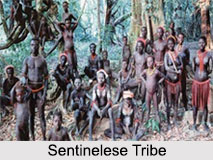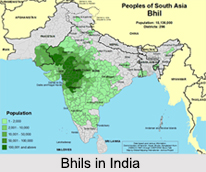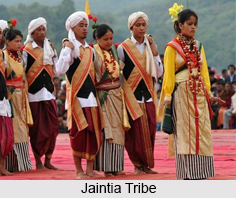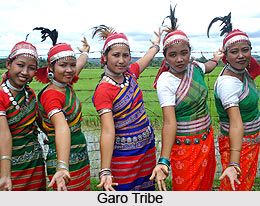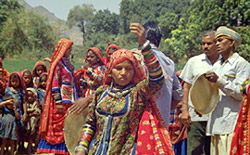Dhanwar tribe is a primitive tribe residing in Bilaspur zamindari estates. Dhanwar tribes of Madhya Pradesh are also known as Dhanuwar, which signifies bows and arrows. The name of the tribe has been derived from the term Dhanuhar, meaning a bowman. The name is similar to those of Dhangar, or labourer, and Kisan, or cultivator. These names are also applied to Oraon tribe and Halba tribe. The Dhanwars are not associated with the Dhanuks, although the names have same meaning. Apart from Madhya Pradesh, the people of this tribal group are also scattered in and around some parts of Jharkhand and Chhattisgarh. Regarding the origin of Dhanwar tribe, it is said that they are probably an offshoot of either Kawar tribe or Gond tribe or probably a mixture of both these tribes. Further, there are some legends that indicate the origin of Dhanwar tribe. Interestingly, the tribe`s own legend suggesting their origin is almost same as that of the origin of the Gonds. The names of bulk of the sects or family groups are alike with those of the sect names of Kawars.
Dhanwar tribe has no endogamous divisions. However, they are divided into several totemistic exogamous sects. Many of these sects are named after different plants or animals. Members of the sects abstain from killing or harming the animal or the plant after which it has been named. In Dhanwar society, marriages within the same sect and between the first cousins are prohibited. Usually, the father of the boy takes the initiative and looks out for a suitable match for his son. They allow widow remarriage and divorce. Dhanwar tribes usually bury their dead. Dhanwars are religious people and they principal deities of this tribal group are Thakur Deo (god of agriculture) and Dulha Deo (god of family and hearth).
The people of this group are engaged in diverse occupations. With reference to the name, it can be said, these Dhanwar tribes are adept at professions like hunting. Also due to their stay in the forest fringes, quite a handful of these Dhanwar tribes also have taken up profession of gathering forest products like fruits, root vegetables etc. In the earlier times, these Dhanwar tribes are cattle rearers and lead lives of that of typical nomads. However, these days these Dhanwar tribes like to live a more settled life. Maximum of these Dhanwar tribes reside in small hamlets. Some of the people of Dhanwar group have developed their own indigenous industries. The chief products of their cotton industries include bamboo mats and large baskets. The people of this tribal group are the ardent followers of Hinduism. Tattooing is an important part of their culture. Women get tattooed at their parent`s place. In their community, new born babies are named on the sixth day after birth. Like the Kawars, the Dhanwars too do not have a language of their own. The name of their tribal dialect is called Dhanwar and apart from this language the tribal folks are also fluent in Chhattisgarhi language and Marathi language.

















